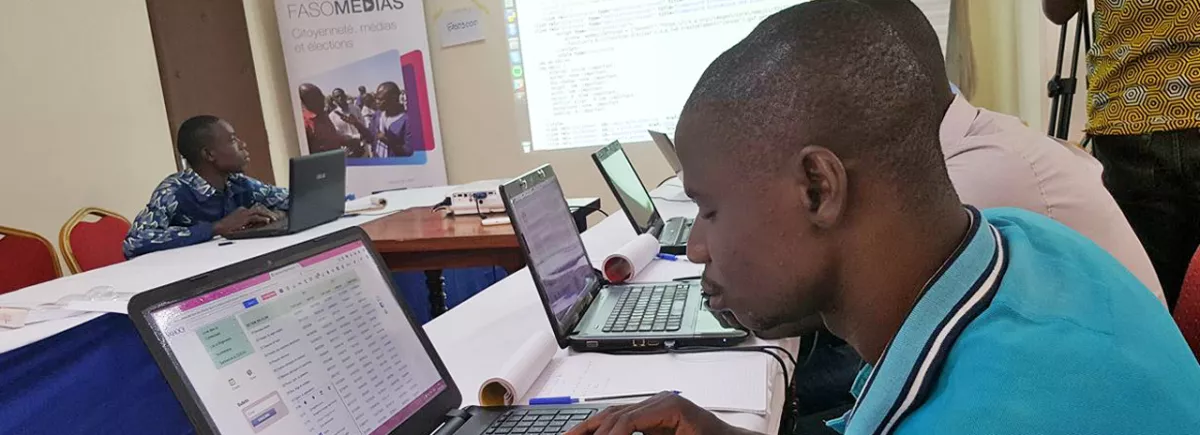
Faso Medias starts investigating!
Related project
Faso MediaIn July 2016, twelve journalists and editors-in-chief, from radio, written press, online and web TV media in Burkina Faso took part in a three-week training course relating to investigative journalism. With the subject and tools well within their grasp, they now have five weeks to complete their investigations.
The journalists began this training course by looking at administrative (organisation of ministries, decentralisation, transfer of skills, role of institutions etc.), economic (budget, macro-economics, country resources etc.) and legal matters (law relating to the press, public v private life etc.).
The goal was to strengthen their general knowledge in the area, teach them essential information for conducting investigations, provide them with various ways of interpreting their work and launch collaborations between journalists and experts from the fields of administration, economics and justice.
The agenda included two weeks focused on how to conduct an investigation
The journalists were advised by the course tutors
Sylvain Lapoix and Boureima Ouedraogo on diverse matters ranging from the choice of subject to writing techniques, the organisation of the subject, the issue of sources and verification methods, for example.
Several days were devoted to "data" (whether open or not), a field that is often still misunderstood.
How do you find data? How do you extract, interpret and display it?
In the age of "big data"
, when Burkina Faso has begun a process of making public information more accessible, data has become an essential source for journalists.
This is emphasised by Théodorine Bayala, journalist at
Infowakat.net:
"
Data journalism provides precision and conducting an investigation enables me to expose wrongdoing that was previously hidden. Often, people are embezzling and there is no proof, but by means of these new methods we can make those responsible aware that we can investigate their actions."
For Osséni Bance from
radio LPC, "this training is important because it helps us toovercome an obstacle: instead of simply reporting the facts, we are learning to create journalism that will have an impact on society as a result of our investigations. Instead of simply reporting, we are becoming able to analyse the facts by processing the data."


